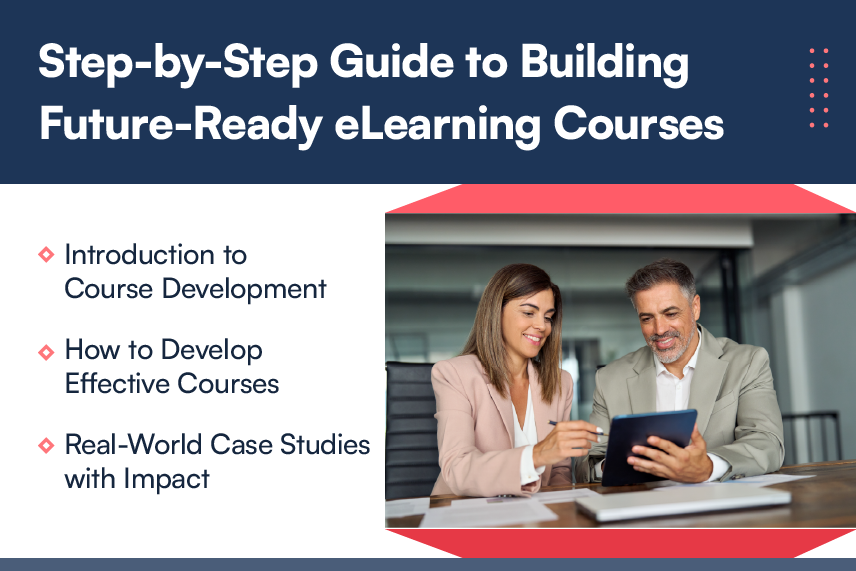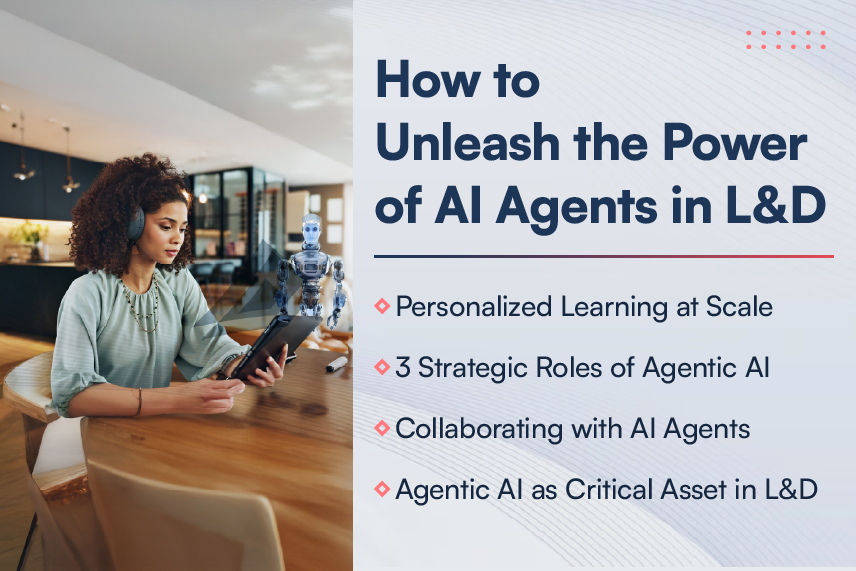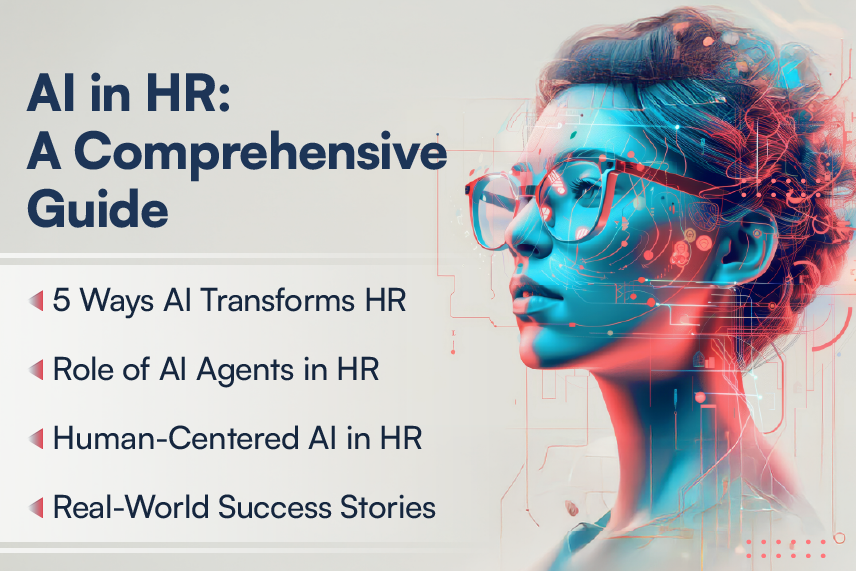
Global emphasis on ‘Upskilling and Reskilling’ is pushing Independent Software Vendors (ISVs) to develop scalable EdTech products and solutions. However, ISVs can only build such products by having a solid product development strategy in place to meet the unique needs of the skilling industry.
ISVs need to create a product development strategy backed by futuristic technologies like AI. They need to automate certain processes, balance innovation with practicality, and prioritize learner experience to stay competitive in the rapidly evolving EdTech landscape.
This blog post will highlight the nitty-gritty of developing an EdTech product at scale for the skilling industry. It will explain how to successfully optimize a product development strategy, from conceptualization to deployment and reengineering.
Navigating the Software Development Life Cycle (SDLC) to Build Scalable EdTech Products
“According to a Harvard Business School professor, approximately 30,000 new products are introduced each year, and 95% of them fail. These statistics clearly underscore the importance of having an efficient software product development strategy backed by best practices, thorough market research, rigorous testing, and continuous innovation.
Building award-winning EdTech products that maximize business growth can be tricky. That’s where combining the capabilities of digital product engineering and custom content development can help. ISVs need to leverage future-ready EdTech solutions that cover every aspect of the SDLC to meet their niche product development needs. Let’s understand how.
1. Ideation
ISVs in the skilling space need to define their product ideation strategy to harness the true potential of EdTech. This will help them identify gaps in the skilling platform market, build feature roadmaps, and create learner-centric products and solutions.
Skilling platforms need to refine ideas, address end-user pain points, and brainstorm potential approaches to resolve technical debt issues. They need to focus on technical due diligence for acquisitions to ensure profitability. They have to create well-planned product end-of-life strategies for obsolete products with minimal disruption.
2. Architecture
Skilling platforms need to build a robust architecture by discovering the tools, technologies and approaches that best align with their product vision. They need to ensure compliance with Learning Tools Interoperability (LTI) integration standards to create a coherent technology ecosystem without compromising quality.
ISVs in the skilling space can leverage custom integration and automation services to transform and modernize their skilling offerings. They can collaborate with a trusted EdTech partner like Harbinger with experience in providing dedicated support to integrate skilling platforms with top LMSs and Learning Experience Platforms (LXPs).
This collaboration can help ISVs establish a technology architecture that facilitates custom integrations. ISVs can support seamless workflow, infrastructure, conversational, API-based, and data-related integrations to boost their product efficiency, scalability, and capability.
3. Design

Skilling platforms need to streamline their approach to UI and UX design to ensure their product is engaging, visually appealing, and user-friendly. They have to focus on core aspects like user journey/empathy mapping, information architecture, wireframing, and validation. This will help them create UI and UX designs that offer relevant and seamless experiences to learners.
ISVs in the skilling domain need to create learning paths and design learning journeys that seamlessly integrate diverse content formats and foster continuous skill development. They need to invest in the best UI design and frontend development services that accelerate digital transformation and take learning platform design and development to the next level.
4. Development
Development is one of the most important stages that ISVs in the skilling space need to consider when creating an EdTech product at scale. ISVs need to follow a product engineering approach that streamlines essential processes like rapid prototyping, frontend and backend product development, test automation, DevOps and infrastructure automation, and compliance adherence.
ISVs need to embrace the critical EdTech trends to support their product development strategy. This will help them develop intuitive cloud, SaaS, and mobile apps, products, AI-based virtual coaches, and other online learning solutions. Moreover, ISVs will be able to combine their product and content development capabilities through custom learning, nudge-learning, and gamification.
5. Testing
ISVs in the skilling space need to implement sophisticated testing methodologies to meet their product testing and quality assurance requirements. They can initiate test automation strategies to simplify identifying and fixing bugs and other usability issues.
ISVs can make the most of auto-generated test scripts, test data generation, and accessibility checks. This will help them effectively automate web-based application testing and API testing, enhancing the reliability and scalability of their software products and solutions.
Here are some of the best practices to help skilling platforms make their product testing solid and failsafe.
- Leveraging data wrangling for AI-enablement
- Prioritizing data visualizations
- Adopting basic-to-advance ETL solutions
- Building data warehouse and data lake solutions using Azure or AWS platforms
ISVs in the skilling industry need to conduct sustenance, performance, and security engineering to improve their product’s operational capabilities. They can also perform AI-based evaluation to measure ROI.
6. Deployment

Deployment marks the pivotal phase where the product developed now transitions from testing environments to live operational settings. It requires ISVs in the skilling space to pay close attention to meticulous planning, coordination, and execution. It helps ISVs enable smooth product deployment and launch.
From configuring infrastructure to migrating data, ISVs need to ensure successful product deployment to minimize disruptions and maximize user adoption. They can implement advanced post-deployment monitoring and support mechanisms to address unforeseen issues and optimize product performance.
7. Technical Support
Technical support is vital to ensure product reliability and customer satisfaction throughout its life cycle. ISVs can team up with an experienced product development partner to gain timely assistance and necessary troubleshooting guidance for smooth product functionality.
This partnership will enable ISVs to diagnose issues beforehand and offer relevant solutions that facilitate seamless user experiences. Furthermore, ISVs will be able to gather user feedback to modify features and enhance their product quality.
8. Maintenance
It is necessary to maintain the product’s functionality, security, and performance post-deployment. As such, skilling platforms need to implement patches, updates, and enhancements to address evolving user needs and technology advancements.
9. Reengineering
ISVs in the skilling domain need to revitalize and optimize existing products or systems to meet changing business requirements or technology standards. They need to evaluate the product’s architecture, features, and performance to identify areas of improvement.
Some key considerations to expedite product reengineering initiatives and enhance the scalability, efficiency, and competitiveness of the product are as follows:
- Redesigning and refactoring the product
- Incorporating vital UI/UX enhancements
- Integrating modern technologies like Generative AI
Develop intelligent EdTech products including skilling platforms with Harbinger’s end-to-end AI-based digital product engineering services. Cover everything from product ideation to reengineering.
Final Thought
Developing scalable and future-ready EdTech products and solutions demands a systematic approach that caters to the evolving needs of learners worldwide. ISVs in the skilling industry need to put their best foot forward in order to create education breakthroughs in the global skilling landscape.
If you are looking to develop an EdTech product with agility or leverage the capabilities of Generative AI and multimodal large language models like GPT-4 to advance your skilling platform, connect with us. Our EdTech experts would be more than happy to help you achieve your desired business goals.






